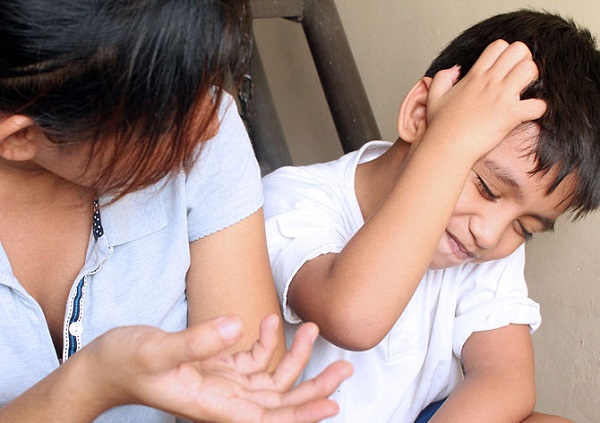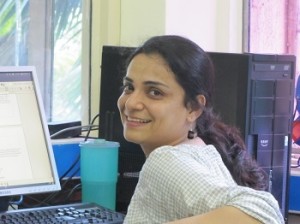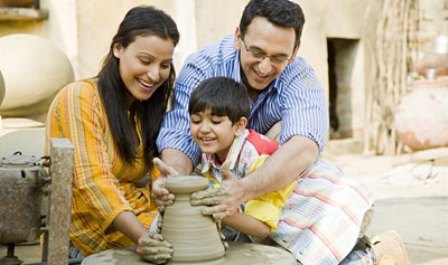It is tough to devote quality time to our children, but only parents should shape their children’s lives, not technology and media.
 by Dr Pooja Birwatkar
by Dr Pooja Birwatkar
The other day my six-year-old boy was humming a song. While I was straining to catch the lyrics, he suddenly stopped and asked, “Mom, what is ‘wohka’?” To my blank look, he explained by humming a line, ‘Char bottle wohka, kaam mera roz ka’.
I was shocked and fumbled for an answer. I quickly went into a mental overdrive: how did he hear this song, we never play music channels on TV or in the car, he is not exposed to any TV content except restricted cartoon and news channels. So how had he heard this song? And when?
Lectures in child psychology sprang to my aid and I remembered what I had been taught: always tell a child the truth. So I told my son, ‘wohka’ was actually a drink for adults. He seemed satisfied with the answer, but I continued to be agitated, shooting a volley of questions about where he had heard the song. He finally said he had heard someone singing it and caught it.
Then I sat back and wondered: how long can I confine my child to spaces I have earmarked for him? I can physically control the TV set, expose him to less silly cartoons, but for how long? Most parents complain that their kids watch too much TV or are always on the mobile phone. Then they admit that they are unable to make much time for their children, thus resulting in the latter getting the run of the house.
Everybody’s right, parents and children, too. A place like Mumbai eats up valuable time for most parents commuting to and from work. On reaching home, there is no time to rest and play with their children. So we try to compensate by taking our children out to malls over the weekends, and feel that we are helping them create special childhood memories by giving them money to play in game zones.
and play with their children. So we try to compensate by taking our children out to malls over the weekends, and feel that we are helping them create special childhood memories by giving them money to play in game zones.
What stops us from going to gardens and playing cricket or another sport with our children? Or just going to a beach and having a good game of Frisbee with them? Sure, Mumbai is very crowded and there’s no place to do anything. But the city is not short of nature and public parks – not using these spaces to bond with your child is criminal, and a cop-out.
Technology has invaded our lives and we can’t always stop our children from being exposed to its ills. What we can do is modify our own behaviour – and we can start by setting good examples of ourselves in front of our children. Don’t play on our phone or be hooked to social networking sites when you are home. Just think: a year ago, when you didn’t have as many apps on your phone, was your life not good enough? Do you really need all the new apps that are available?
A child who sees a parent devote more time to his phone than to the people inside the house is not going to obey when that parent tells them not to play mobile phone games. If you are going to shake your body to meaningless item songs with titillating lyrics, or worse, take your children along to watch an A-rated film, you lose the right to tell your child that these songs and films are bad for them. Children model themselves on their parents – it is a cliché, but you must practice what you preach or suffer the consequences.
After all, it is easier to reorganise our own lives and help our children make better choices, than to deal with disgruntled teens and young adults who would later blame you for not investing in their overall development, and leaving them to figure out their own way of living. It is not a question of whether I want my child to know that words like ‘vodka’ exist, but I want him to learn about these things in a scientific manner, rather than being exposed to them crudely. There is still time to undo the damage – rise up to the challenge, gear up for it, and don’t complain.
Besides, who said parenting was easy?
Read another take on the same issue here.
Dr Pooja Birwatkar is currently pursuing post doctoral research and working in the area of science education. She has been associated with the field of education in the past as a teacher educator, and her area of interest is research in education.
(Pictures courtesy www.parentingnation.in, www.wikihow.com)





